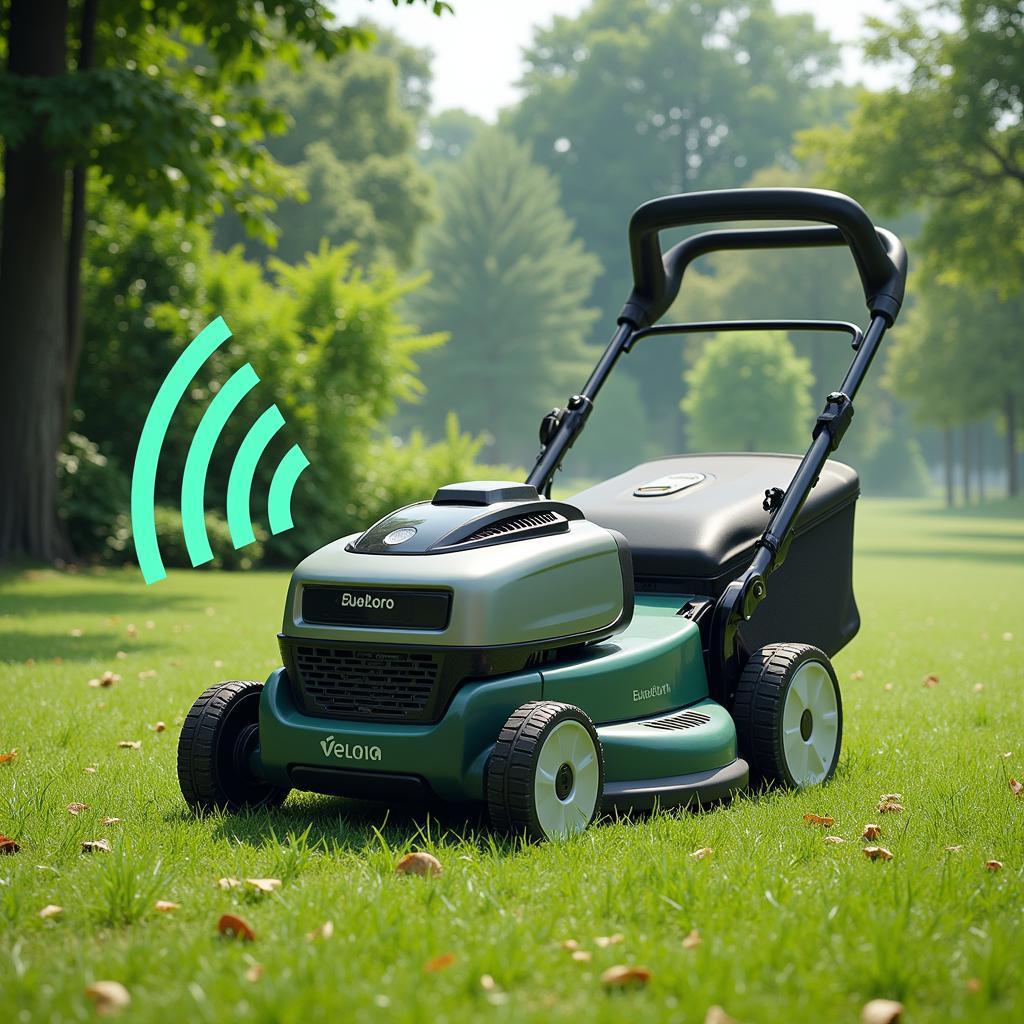The constant roar of lawnmowers and leaf blowers can be a real nuisance. Why aren’t yard care tools quieter? This article explores the reasons behind the noise, delves into current noise-reduction technologies, and looks ahead at the future of quieter landscaping.
The Noise of Necessity: Why Yard Tools Are So Loud
Many yard care tools, especially those powered by gas engines, are inherently noisy. This is primarily due to the internal combustion engine, which involves small explosions occurring rapidly within the cylinder. These explosions, along with the movement of mechanical parts, create significant vibrations and noise. Electric tools, while generally quieter than gas-powered counterparts, also produce noise from their motors and cutting mechanisms.
The Combustion Engine Conundrum
The combustion process in gas-powered tools is a major source of noise. The rapid expansion of gases during combustion generates pressure waves that translate into sound. Furthermore, the exhaust system, designed to expel these gases, contributes to the overall noise level. The faster the engine runs, the more explosions occur per second, and the louder the tool becomes.
Mechanical Mayhem: Gears, Blades, and Fans
Beyond the engine, the moving parts of yard care tools also contribute to the noise. Rotating blades, spinning fans, and whirring gears all generate their own sounds. The faster these components move, the more intense the noise becomes. The material and design of these parts also play a role; metal blades, for instance, tend to produce a higher-pitched whine compared to plastic or composite blades.
Muffling the Roar: Current Noise-Reduction Technologies
Manufacturers are constantly working to develop quieter yard tools. Several noise-reduction technologies are already being implemented, although perfect silence remains elusive.
Mufflers and Sound Dampening
Mufflers are a common feature on gas-powered tools, designed to reduce engine noise. They work by absorbing and redirecting sound waves, effectively muffling the exhaust noise. However, they can only reduce the noise to a certain extent, and often add bulk and weight to the tool. Advanced mufflers with complex internal chambers are more effective at noise reduction.
Electric Motors: A Quieter Alternative
Electric yard tools are generally quieter than their gas counterparts. Electric motors operate without the explosive combustion process, resulting in significantly lower noise levels. Battery-powered tools are particularly quiet, as they eliminate the noise of a power cord being dragged along the ground.
Blade Design and Aerodynamics
The design of cutting blades and fan blades can also impact noise levels. Aerodynamically optimized blades are designed to minimize air turbulence, which reduces noise associated with air movement. Sharper blades also cut more efficiently, reducing the overall operating time and thus the total noise exposure.
The Future of Quiet Landscaping
The quest for quieter yard care tools is ongoing. Emerging technologies promise even greater noise reduction in the future.
Brushless Motors and Advanced Electronics
Brushless motors, increasingly popular in electric tools, operate more efficiently and quietly than traditional brushed motors. Advanced electronic speed controllers also allow for precise control over motor speed, further reducing noise.
Noise-Cancelling Technology
While still in its early stages for yard tools, noise-cancelling technology has the potential to significantly reduce perceived noise levels. This technology uses microphones to detect sound waves and then generates opposing waves to cancel them out.
 Future Noise-Cancelling Lawnmower
Future Noise-Cancelling Lawnmower
Conclusion
While completely silent yard work might be a distant dream, significant strides are being made towards quieter tools. Understanding why these tools are noisy in the first place allows us to appreciate the advancements being made and anticipate a future where landscaping is less of a sonic assault. Choosing electric or battery-powered tools, opting for models with advanced noise-reduction features, and keeping blades sharp can all contribute to a quieter yard.
FAQ
- Are battery-powered tools really quieter? Yes, generally significantly quieter than gas.
- Do all electric mowers have the same noise level? No, it varies by motor and design.
- What is the quietest type of leaf blower? Battery-powered models are typically the quietest.
- How can I make my current gas mower quieter? Check the muffler and ensure blades are sharp.
- Are there any regulations on noise levels for yard tools? Yes, some localities have restrictions.
- What is the future of noise reduction in yard tools? Noise-cancelling technology holds promise.
- How often should I sharpen my mower blades? Every 20-25 hours of use is recommended.
Need help with car diagnostics?
Contact us via WhatsApp: +1(641)206-8880, Email: [email protected] or visit our workshop at 910 Cedar Lane, Chicago, IL 60605, USA. We offer 24/7 customer support.

Leave a Reply